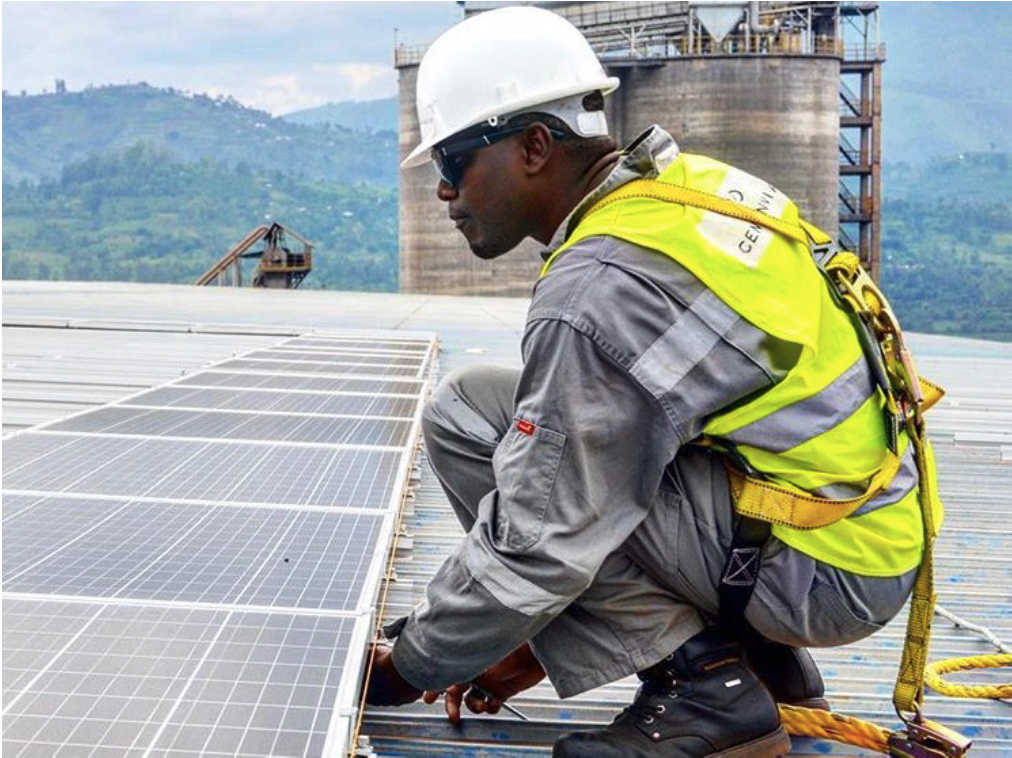Solar and battery energy storage-focused power company Centennial has raised $1.2 million for a new fund to finance emission-free power systems for small-and-medium sized enterprises in African countries.
The first project to be financed by the new fund is a rooftop solar installation at Juja City Mall in Nairobi, Kenya.
“We’re raising the fund on a rolling basis because the pipeline continues to grow, and hope to have a large pool of capital to deploy for this segment of the market,” Centennial’s David John Frenkil told ImpactAlpha. Founded in 2014, Centennial expects to raise a further $10-12 million for the C9 fund by the first quarter of next year. The firm has a pipeline of projects in manufacturing, healthcare, logistics, commercial real estate, hospitality and education.
Centennial has funded more than a dozen solar power systems for small and medium-sized enterprises in east and southern Africa under a build, own, operate and transfer model. Customers invest nothing up front and pay Centennial for the electricity the systems generate over a five- to 15-year period to repay Centennial for the capital cost of the systems. Once the agreements end, the customers own the system and no longer have to pay for the power it generates.
A number of different companies are focused on expanding solar power access in Africa using similar financing structures, including M-Kopa and Bboxx. Centennial is unusual for its focus on small businesses.
Centennial is targeting its efforts at small and medium-sized enterprises, which have struggled to raise capital from traditional sources. Frenkil also believes it’s the most scalable market in the African electricity sector. Small businesses typically pay 20 to 25 cents per kilowatt hour of electricity. Centennial’s solar-only customers generally pay from six to 12 cents per kilowatt hour.
“There are so many small and medium-sized businesses,” he said. “They are also paying the highest rate of any business in most countries on the continent.”
Africa’s SME sector is also appealing from an investment perspective. According to Frenkil, the projects can be quickly deployed and customers generally pay their bills on time. The reliable revenue streams also help attract investors, who can expect annual returns in the low double digits.
“We’ve had zero payment defaults with over 500 invoices sent because we’re offering a lower cost than the utility, usually cutting their power price in half,” he said.
The majority of investors putting money into Centennial’s projects are new to Africa. Of the two dozen investors that have contributed funds since Centennial started raising money in 2016, just two had previously invested there. Frenkil is increasingly seeing interest from impact investors, too.
“Inherently, there’s an impact given that we’re helping small medium sized businesses to decarbonize and, and at the same time to become more profitable,” he said.
Many of Centennial’s projects in sites with electricity reliability issues involve replacing diesel back-up generators with solar panels and battery storage. As well as providing cheaper power, the systems also can improve workplace safety.
“On-site diesel generators pose a significant health risk for workers so I think that you’ll see a huge shift from diesel to storage, particularly among businesses that are safety-focused,” Frenkil said. “Battery energy storage is also now a more cost-effective replacement for diesel generators in most use cases.”











